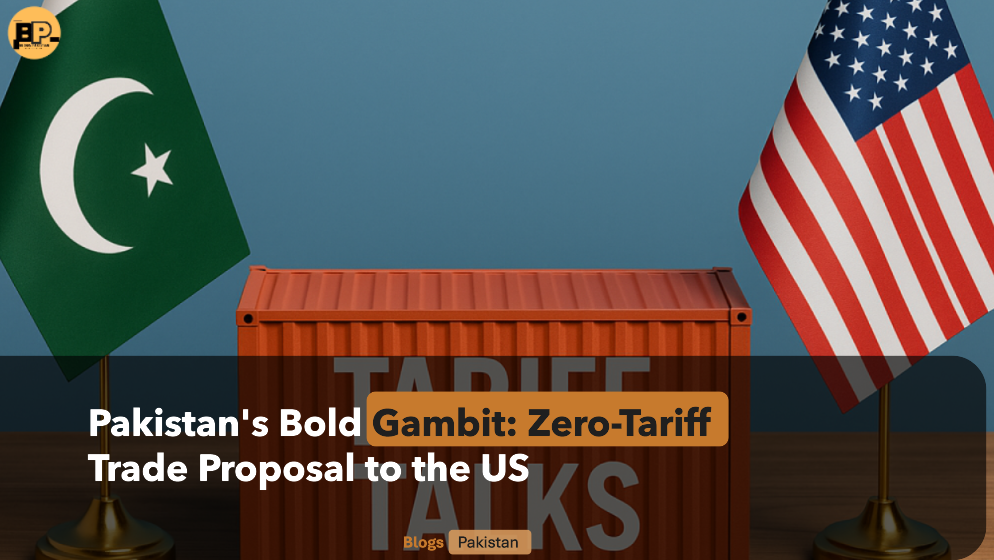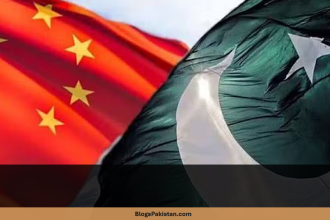In a move that has sent ripples through the international trade community, Pakistan has extended a compelling invitation to the United States for Zero-Tariff : a bilateral trade agreement built upon the foundation of zero tariffs. This proposition, emerging on the heels of President Trump’s stated ambition to “substantially” amplify trade with Pakistan, signals a significant strategic maneuver aimed at reshaping the economic partnership between the two nations.
The core of Pakistan’s proposal lies in the mutual elimination of tariffs on a carefully selected range of goods, identified based on the shared economic interests of both sides. The overarching objective is clear: to invigorate two-way trade across a diverse spectrum of industries, fostering stronger economic linkages and unlocking new avenues for growth.
A Calculated Response to Trade Dynamics
This overture from Islamabad arrives at an intriguing juncture in global trade relations. The backdrop includes pronouncements from Washington regarding the intent to bolster trade with Pakistan, particularly following the US leader’s involvement in brokering a ceasefire agreement between Pakistan and India. Subsequent to this diplomatic achievement, the US president publicly expressed a desire to engage in “substantial” trade expansions with both South Asian nations.
Pakistan’s zero-tariff proposal can be interpreted as a direct and proactive response to this expressed interest, seeking to translate goodwill into concrete economic benefits. Sources within Pakistan have indicated that the nation aims to broaden its trade footprint with the US across numerous sectors through this ambitious initiative.
It’s worth recalling the recent trade policy pronouncements from the US, including the announced imposition of significant reciprocal tariffs on various countries. While these tariffs were later suspended for a 90-day period, with the notable exception of China, the initial announcement underscores the potential for shifts in US trade strategy. In this context, Pakistan’s proposal for a zero-tariff arrangement could be seen as a strategic move to carve out a distinct and preferential trade relationship with the US, potentially mitigating the impact of broader protectionist tendencies.
Diplomacy and Economic Overture: A Tandem Approach
The sequence of events – the US mediation of the ceasefire followed by the stated intent to increase trade – suggests a potential link between diplomatic engagement and economic incentives. Pakistan’s proposal effectively builds upon this momentum, seeking to solidify a positive diplomatic outcome with tangible economic advantages for both nations. The emphasis on “mutual interests” in the selection of tariff lines indicates a willingness on Pakistan’s part to engage in a reciprocal arrangement, ensuring that the agreement yields benefits for the US economy as well.
Prime Minister Shehbaz Sharif’s welcoming remarks regarding the US president’s statement on increased trade further underscore Pakistan’s commitment to pursuing closer economic ties. This high-level endorsement lends significant political weight to the zero-tariff proposal, signaling a unified desire within the Pakistani government to forge a stronger trade partnership with the United States.
Unpacking the Potential Benefits
A zero-tariff bilateral trade agreement could unlock a multitude of benefits for both Pakistan and the United States. For Pakistan, the elimination of US tariffs on its exports could provide a significant boost to its industries, enhancing their competitiveness in the lucrative American market. This could lead to increased export volumes, job creation within Pakistan, and overall economic growth. Key sectors in Pakistan, such as textiles, agricultural products, and emerging technology, could potentially see substantial gains from such an arrangement.
Conversely, the removal of Pakistani tariffs on US goods would make American products more affordable and accessible to Pakistani consumers and businesses. This could expand the market for US exporters, supporting jobs and economic activity in the United States. Sectors such as machinery, technology, and certain agricultural products from the US could find new opportunities for growth within the Pakistani market.
Navigating the Path Forward Zero-Tariff
While the proposal for a zero-tariff trade agreement represents a bold and potentially transformative step, the path to its realization will undoubtedly involve intricate negotiations and considerations on both sides. Key aspects that would need to be addressed include:
- Selection of Tariff Lines: Determining which specific goods would be included in the zero-tariff agreement will be crucial. This process would require careful consideration of the sensitivities and strategic interests of key industries in both countries.
- Rules of Origin: Establishing clear and robust rules of origin will be essential to prevent circumvention of the agreement and ensure that the benefits primarily accrue to goods genuinely originating from Pakistan and the United States.
- Phased Implementation: The agreement could potentially be implemented in phases, gradually reducing tariffs over a specified period to allow industries in both countries to adapt to the new trade regime.
- Non-Tariff Barriers: Addressing any existing non-tariff barriers to trade, such as regulatory hurdles or customs procedures, will be important to fully realize the potential benefits of a zero-tariff arrangement.
A Unique Opportunity for Economic Partnership
Pakistan’s proposal for a zero-tariff bilateral trade agreement with the United States presents a unique opportunity to forge a deeper and more robust economic partnership. In a global landscape often characterized by trade tensions and protectionist measures, this initiative signals a willingness to explore innovative approaches to fostering mutually beneficial trade relationships.
The potential economic gains for both nations are significant, and the proposal underscores Pakistan’s proactive stance in seeking to capitalize on evolving trade dynamics and strengthen its ties with a key global economic power. As negotiations potentially unfold, the world will be watching to see if this bold gambit can pave the way for a new era of zero-tariff trade between Pakistan and the United States.










